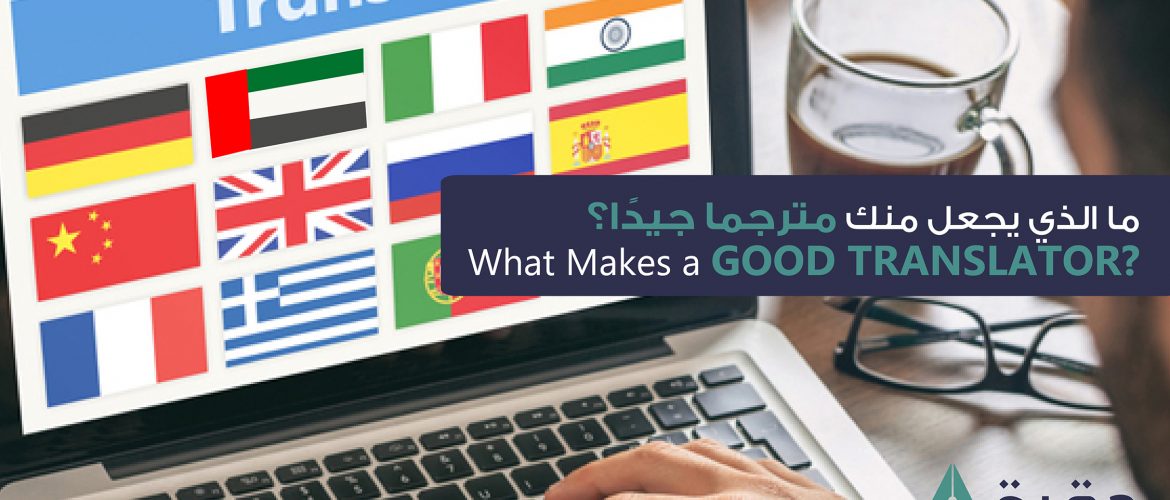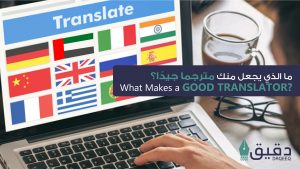Category: Translation Written by: Daqeeq Date: 09 Nov 2021
Daqeeq says….
What Makes a Good Translator?
What makes a good translator? Aside from competency in two languages, translation necessitates a wide range of abilities, from communication and writing to industry-specific knowledge. In addition, a professional translator is good at organizing and managing his or her time.
There is no common prescription for becoming a great translation, especially in a highly competitive industry with hundreds of thousands of language specialists. But, how can you improve as a professional and establish a reputation in this field?
Here are tips to help you improve your translation abilities and become a good language specialist.
First and foremost, master your own language!
Being fluent in a second language is insufficient for producing high-quality translations. Your command of a language other than your home tongue becomes meaningless if you make simple grammatical and spelling errors, or if you can only interpret idioms and cultural allusions literally. Obtaining translation and language education is a significant benefit.
In Arabic, for example, sentence construction nearly usually begins with the verb. Arabic translators of English material frequently end up mimicking the original text’s sentence structure, putting the verb in the center of the phrase. The end result is an uncomfortable Arabic statement that quickly identifies the work as a poor translation.
Incorporate research techniques
No matter how experienced you are, you will come across new, difficult, or unfamiliar terminology and expressions from time to time. A skilled translator goes above and beyond to get the solution. The translator must learn to apply a mixture of academic and methodological approaches to finding solutions to difficult terms:
-
The Dictionary: Invest in decent dictionaries for the languages you intend to translate and use them frequently. Online/software dictionaries are handier and more efficient, but their quality is more likely to differ by language.
-
Check out Wikipedia: many entries about a topic link to articles about the same topic in different languages. This provides you with a solid indication of the recognized and frequently used translation, or comparable phrase, for your target language.
-
Google it: This is especially useful if you’re attempting to choose between two possible translations of a phrase, or if you’re not sure whether your best guess is correct. If you Google the translated phrases, you’ll see an indication of the quality of your prediction in the number of search results discovered as well as the example used in the top results.
Proofread, then proofread again!
Your initial draft will always include mistakes. Typos, grammatical faults, and punctuation issues are unavoidable… the first time. Make use of the services of an editor or proof-reader if you are in a position to do so. A fresh pair of eyes will see any faults far more quickly.
Make it fascinating; translating is an art!
Do you ever get lost in a fantastic book? A similar impact should be produced in the reader by translated content. A literal or erroneous text detracts from the overall experience. As a translator, it’s critical to find your voice. Find and hone your personal style.
I write in simplified Modern Standard Arabic (MSA) [al-fushá], and I frequently employ terms and expressions that Arabic people use casually without recognizing they are from MSA.
Recognize your own strengths!








No comments yet.